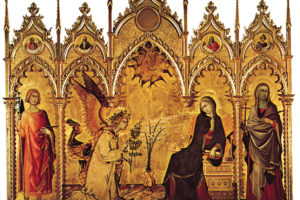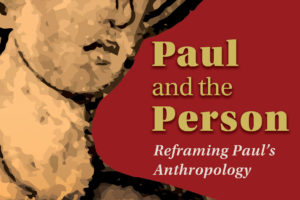We are less than a year away from the 2012 presidential elections and I suspect that I am not the only one who often finds political pontification in Christian circles (right, left or otherwise) to be an obscene bore. But it’s not just Christian circles. It’s every circle. What makes political discourse so confusing is that a solid foundation of social theory is largely lacking for the vast majority of voters. That includes Christian voters. And for those Christian voters who do have some grasp of social theory, it is very common for their vision of social life to default to a one-kingdom framework.
What do I mean by this? A one-kingdom theological framework sees all societal institutions as needing to be subjected to the rule and reign of Christ the Redeemer. This concept of a one-kingdom framework sees the church infiltrating the institutions of the world and making them “more Christian.” This one-kingdom framework ultimately traces its lineage back to Abraham Kuyper, who represented the beginning of a neo-Calvinist strain that has had a tremendous affect on political discourse, especially the way the evangelical right conceives of social theory. Kuyper, for his own part, was dreadfully confusing on the matter. Up to this point, the Reformed tradition had been thoroughly marked out by the contrasting view, the two-kingdom model (which I will defend momentarily). The two-kingdom model sees two spheres in which people must operate. First is that which Calvin labeled “the civil sphere,” which includes the state and other institutions where believers and non-believers alike find themselves having to work together toward a common end. Second is the “religious sphere,” in which only those who are called by God’s grace are working toward a common end. Christ rules both spheres but he rules them in different capacities. In the civil sphere, Christ rules as the sovereign providential sustainer. In the religious sphere, Christ rules in the same capacity but, additionally, rules as Redeemer.
Kuyper cogently asserted himself as a two kingdoms theologian. In his book The Ordinances of God, Kuyper writes, “We have refuted the notion that we entertain the foolish effort to patch together civil laws from Bible texts, and we have declared unconditionally that psychology, ethnology, history and statistics are also for us givens which, by the light of God’s word, must determine the standards for state polity.” In many ways, this is a confusing statement from Kuyper. He starts by denying that the Scriptures had any role in forming social policy and yet ends by stating that the Scriptures must inform outside fields of study in order to arrive at some sort of state polity. In this text, we can see a theological move occurring in Kuyper that becomes intensified in later neo-Calvinist writings, such as that of Herman Dooeywerd.
David VanDrunen, in his book Natural Law And The Two Kingdoms, also helps point out that Kuyper articulated a crucial distinction in his thought between the church institutional and the church organic. The church institutional was the visible body of believers that partook in the sacraments, the preaching of the word, etc. The church organic was the mysterious way in which Christian thoughts and ideas had their effects on every aspect of society since Christians participated in all the spheres of the world. In Common Grace, Kuyper writes, “The institute does not cover everything that is Christian. Though the lamp of Christian religion only burns within the institute’s walls, its light shines out through its windows to areas far beyond, illumining all the sectors and associations that appear across the wide range of human life and activity.” Thus Kuyper opened the door for Christian ideas influencing the civil sphere, albeit in an indirect capacity. Yet the move in later neo-Calvinist thinking became much more explicit. Where Kuyper was satisfied with indirect influence, later thinkers in the one-kingdom school aimed for explicit reformation of all spheres of life into the image of Christ. And it is with this deliberate aim that the cultural mandate to renew the world was born with vigor. In fact, a number of much talked about modern theological motifs, such as concepts of worldview and the creation-fall-redemption concept, ought to pay homage to later neo-Calvinist thinking, for these ideas are birthed out of an explicitly one-kingdom framework.
Later thought after Kuyper, such as that represented in the mind of Herman Dooeyweerd, saw virtually no sphere of commonality between believer and non-believer. Dooeyweerd states that Christianity “does indeed draw a permanent dividing line of essential significance not only for one’s personal faith but for one’s whole view of society.” His one-kingdom theological framework is so strong that he calls without hesitancy for Christians to “strive for the consolidation of power in organizations that aim at applying Christian principles to society.”
What is so intriguing about Dooeyweerd/one-kingdom thought is that it manifests itself in both right and left wing political circles in very different capacities. While one may look at the last statement quoted from Dooeyweerd and be tempted to strictly see right wing evangelical supra-nationalism, leftist-socialized evangelical thought is also drawn out of the same strand of thinking. While the Christian right would like to explicitly see Christian thought advanced through a modern Christendom, the Christian left would rather see Christian ideals such as caring for the poor be brought about through government social programs. Different ends but ultimately the same theological driver. The right is aiming to Christianize civil institutions while the left seeks to smuggle Christian ideals into the state’s social practices.
For those who are new to this discussion, you probably have a number of questions and thoughts at this point. In this coming weeks, I will be explaining and defending two-kingdoms theology. I will do this via theological exposition. I will also attempt to address a number of practical applications as it relates to this discussion in order to show that it is anything but abstract.
The aim of this post is for it to serve as a sort of primer to the issue. When Christians engage the issue of social theory, we often start at the roof of the house rather than the foundation. We want to talk about the end issues when we would be far better served in considering/debating the framework of our social thought which inevitably leads us to our conclusions on end issues. To be sure, the issue of two-kingdom theology v. one-kingdom theology is a sizeable one. It is on the level of the Calvinism v. Arminianism debate. What you decide on this issue will shape not only your politics but also, and more importantly, your ecclesiology. As such, I look forward to discussing this critical issue with my audience in the weeks to come.





6 Comments
Leave your reply.